Planning a cross-country road trip is an exciting adventure. It’s a chance to see different places, meet new people, and make lots of memories. But to have a great trip, you need to plan well. This means figuring out where you want to go, getting your car ready, working out how much money you’ll need, and packing the right things.
This guide will help you with all these steps. It’ll make planning your big trip easier and more fun. So, let’s start planning your amazing journey across the country!
Initial Planning
Choosing Your Route
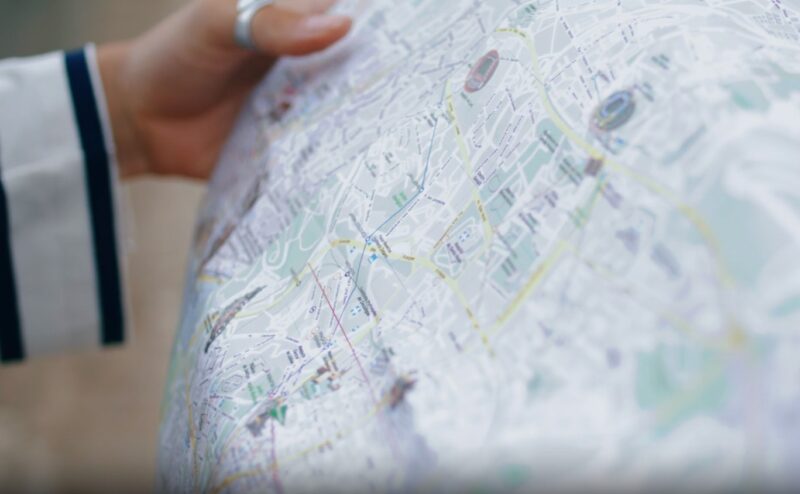
- Assess Your Timeframe: The length of your trip is a critical factor. If you have only a week, you’ll need to be more selective about your destinations compared to a month-long journey. Consider travel fatigue and don’t over-schedule; ensure you have ample time to enjoy each stop. Remember, it’s about the journey as much as the destination, so factor in time for spontaneous exploration and rest.
- Selecting Destinations: Start by listing must-visit landmarks or cities. Think about what interests you – are you drawn to natural wonders, urban experiences, historical sites, or a mix? Research each potential stop to understand what it offers. It’s also worth considering the time of year and how that might affect each destination, like weather conditions and tourist crowds.
- Mapping Your Route: Utilizing online mapping tools is essential for a successful road trip. These tools can help you estimate driving times and distances, allowing you to gauge what’s feasible. Don’t forget to consider alternative routes for scenic drives or to avoid congestion. It’s also wise to identify areas where you might not have cell service and plan accordingly with offline maps.
Budgeting
Budgeting accurately is crucial. Consider all potential expenses: fuel, accommodation, food, attractions, tolls, and parking fees. Remember to set aside a contingency fund for unexpected expenses like vehicle repairs. Don’t forget to factor in variations in costs between different regions, especially for gas and lodging.
There are numerous ways to find deals. Leverage travel apps, membership discounts, and loyalty programs for savings on accommodations and attractions. Early bookings often offer lower rates, and traveling outside peak seasons can also save you money.
Consider using credit card rewards or points to offset some travel costs.
Alternative Accommodations
Staying in hotels every night can add up quickly. Consider alternative options like camping, renting an RV, or using vacation rental services. These can offer not only cost savings but also unique experiences, such as waking up to breathtaking natural scenery.
Research campgrounds and RV parks along your route, and remember that some may require reservations in advance.
Vehicle Preparation

The vehicle you choose is your home on wheels. Ensure it’s comfortable for long drives and spacious enough for passengers and luggage. Consider fuel efficiency – a more efficient vehicle can save you money on gas. If your car isn’t ideal, renting a vehicle specifically for the trip can be a smart choice.
A thorough vehicle check is non-negotiable. This should include an oil change, and checking fluid levels, brakes, tires, and lights. Ensure your air conditioning and heating systems are functioning, as comfort is key on a long road trip.
It’s also wise to have your mechanic check the battery and any other components that might cause trouble.
Packing Essentials
Pack strategically. Along with your luggage, include an emergency kit with items like water, non-perishable snacks, a flashlight, and a first-aid kit. Don’t forget tools like a tire jack, jumper cables, and a spare tire.
Organize your items efficiently, ensuring that frequently used items are easily accessible and that your view through the rear window isn’t obstructed.
On the Road
Driving and Safety
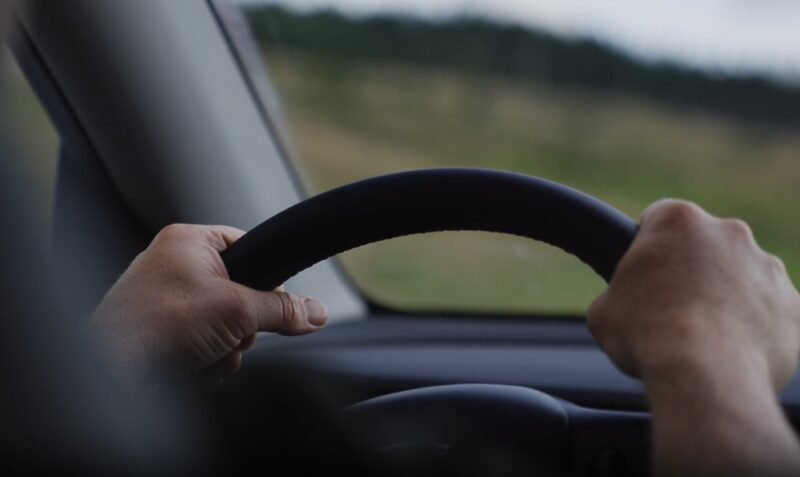
It’s crucial to maintain alertness on long drives. Plan for regular breaks every two hours or 100 miles to stretch and refresh. Use these stops to switch drivers if you’re traveling with others.
Avoid driving during times you’d normally be asleep, and if you feel drowsy, pull over at a rest stop or switch drivers. It’s always better to arrive late than not at all.
Obey Traffic Laws
Traffic regulations can vary significantly between states and regions. Familiarize yourself with these differences, especially speed limits, and rules about using mobile devices while driving. Adhering to these laws keeps you and others safe and helps avoid costly fines.
It’s also important to adapt your driving style to different terrains and weather conditions you might encounter. Always be prepared for emergencies. Keep a list of emergency contacts, including nationwide roadside assistance numbers.
It’s wise to know basic vehicle troubleshooting techniques, like changing a tire or checking oil levels. Carry an emergency kit with essentials like blankets, a flashlight, extra batteries, and a well-stocked first-aid kit.
Navigating and Connectivity
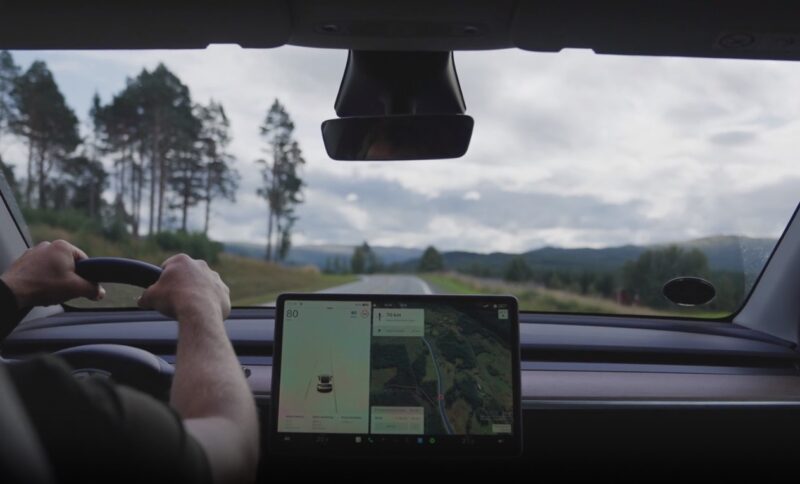
A reliable GPS system is indispensable for a road trip. However, always have physical maps or downloaded offline maps as backups in areas with poor cell reception. Regularly update your GPS system to ensure it has the latest road information.
A consistent internet connection is essential for navigation, finding points of interest, and staying in touch. Consider getting a plan with good nationwide coverage or a portable Wi-Fi hotspot.
Keep your devices charged with car chargers and portable power banks. If traveling in remote areas, a satellite phone or a device with satellite capabilities could be useful.
Apps and Resources
Utilize various travel apps for finding the best gas prices, locating campgrounds, discovering local eateries, and tracking your route. Apps like Roadtrippers or Google Maps can enhance your road trip experience. Also, consider apps for emergency services and weather forecasts to stay informed about conditions on your route.
Cultural Etiquette and Local Customs
The United States is incredibly diverse, with varying customs and norms across different regions. Research and respect these cultural nuances to enrich your travel experience and avoid unintentional offense. This includes understanding regional etiquette, dress codes, and local laws.
Embrace the local cuisine and traditions as they are integral to the travel experience. Whether it’s trying a Philly cheesesteak in Philadelphia or attending a traditional luau in Hawaii, these experiences provide a deeper understanding of the places you’re visiting.
Be adventurous with your food choices but also mindful of any dietary restrictions.
Environmental Consciousness
Be a responsible traveler. Practice Leave No Trace principles by disposing of waste properly, minimizing your impact on natural sites, and respecting wildlife. This not only protects the environment but also ensures these places remain beautiful for future visitors.
Consider using eco-friendly products and reducing plastic usage during your trip.
How to Make the Most of Your Trip
Document Your Journey

Documenting your journey creates lasting memories. Take photos and maintain a travel journal to capture your experiences and feelings. This can be a great way to reflect on your trip and share stories with others. Remember to back up your photos regularly to avoid losing them.
Social media is a fantastic way to document and share your journey, but balance is key. While it’s great to post updates, don’t let it detract from enjoying the moment. Use scheduling tools to post updates or set aside specific times for social media to avoid constant distractions.
Souvenirs and Mementos
Collecting souvenirs is a wonderful way to remember each place you visit. Instead of generic items, look for unique, locally-made products. These not only serve as better mementos but also support the local economy. Keep a small notebook or digital note on your phone to jot down the stories behind each item for future reminiscing.
Engage with Locals

Locals are your best resource for discovering hidden gems and getting authentic experiences. Strike up conversations at coffee shops, parks, or local events. Be respectful and open-minded in your interactions, and you might just make lasting friendships or gain valuable tips that no guidebook can offer.
In some areas, especially in culturally diverse cities or territories like Puerto Rico, you may encounter language barriers. Learning basic phrases in the predominant language or using translation apps can greatly enhance your interaction with locals and show respect for their culture.
Community Events
Participating in local events and festivals is a fantastic way to immerse yourself in the community. Check local calendars for events like farmers markets, concerts, or town celebrations. These events often offer unique insights into the local culture and are a great way to experience local life.
Stay Flexible
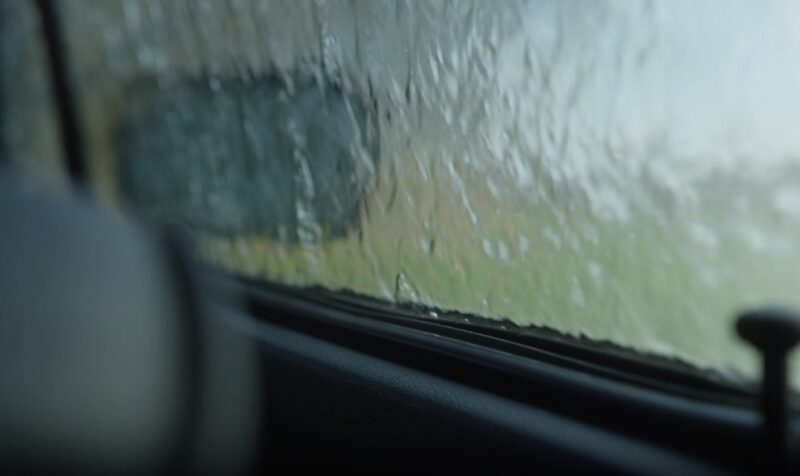
Road trips are inherently unpredictable. Be prepared to adapt your plans due to unforeseen circumstances like weather changes, road closures, or personal preferences. This flexibility can lead to unexpected discoveries and experiences that might end up being the highlight of your trip.
Embrace Spontaneity!
Some of the best travel experiences are unplanned. Be open to detours, recommendations from locals, or sudden inspirations. This could mean taking a scenic back road, visiting a recommended diner, or stopping at an unplanned attraction.
Finally, remember to relax and enjoy the journey. It’s easy to get caught up in trying to see and do everything. Take time to appreciate the landscapes, savor the moments, and enjoy the freedom and adventure of the open road.
Your road trip is as much about creating memories and enjoying experiences as it is about reaching destinations.
Accommodations and Rest
Choosing Where to Stay
| Aspect | Hotels | Motels | Camping Options |
|---|---|---|---|
| Cost | Higher cost | Budget-friendly | Cost-effective |
| Amenities | More amenities (pools, gyms, etc.) | Basic amenities | Nature-based experiences |
| Accessibility | Typically available in urban areas | Convenient roadside locations | Campgrounds and national parks |
| Reservation Required | Often recommended, especially in peak seasons | Usually not required | Reservations may be needed in peak seasons |
| Connection to Nature | Limited, urban environment | Minimal connection to nature | Closest connection to nature |
| Reviews & Safety | Generally well-reviewed and safe | Varies, check reviews | Safety depends on location and precautions |
While spontaneity is a key element of road trips, booking your accommodation in advance for certain parts of your journey, especially in popular tourist destinations, can save you from the stress of finding a last-minute place to stay. Use apps and websites for quick comparisons and best deals. However, leave some nights unplanned for spontaneous exploration.
Rest and Recovery
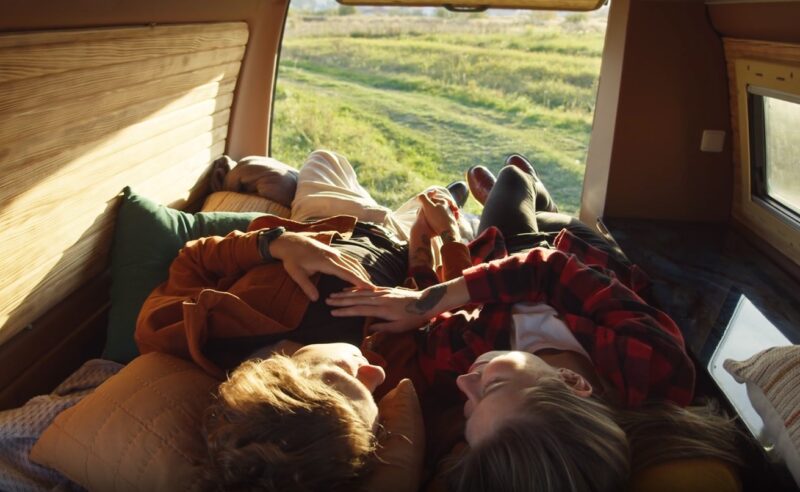
Good sleep is vital for the energy and alertness needed for driving and enjoying your trip. Invest in quality rest by choosing comfortable accommodations and sticking to a regular sleep schedule as much as possible.
Consider earplugs and eye masks for uninterrupted sleep, especially if you’re a light sleeper or staying in busier areas.
Breaks and Relaxation
Regular breaks are essential for preventing driver fatigue and keeping your road trip enjoyable. Plan for leisurely stops at scenic viewpoints, interesting landmarks, or rest areas. These breaks offer a chance to stretch, refresh, and enjoy your surroundings, making the journey more pleasant.
Safety and Security
Safety should always be a priority. Research the safety of the areas where you plan to stay, especially if you’re camping or parking overnight in less populated areas. Always lock your vehicle and keep valuables out of sight. If you ever feel unsafe, trust your instincts and move to a safer location.
Food and Dining
Plan Your Meals!
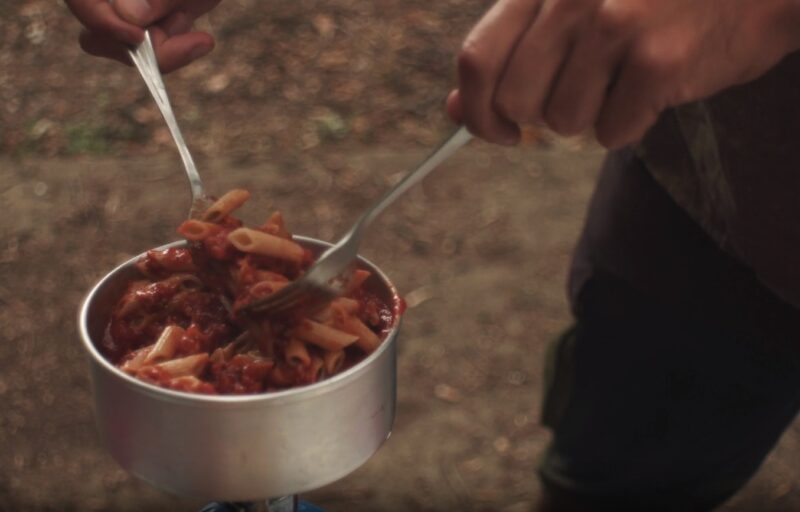
Stock up on a variety of snacks for the journey. Choose snacks that are both nutritious and satisfying, like mixed nuts, fruits, granola bars, or jerky. Snacks are not only a way to curb hunger but also a good way to keep morale and energy high during long stretches of driving.
Remember to include some indulgent treats too! However, take the opportunity to explore local cuisines and eateries. Avoid the monotony of chain restaurants by trying local diners, food trucks, and farmers’ markets.
Not only does this enhance your travel experience, but it also supports local businesses. Research or ask locals for recommendations to find the best dining spots.
Cooking Options
If you’re camping or in an RV, cooking can be a delightful and cost-effective way to eat. Plan simple meals that can be easily prepared on a camp stove or grill. Cooking also allows you to enjoy the local produce you might find along the way, and it can be a fun and engaging activity, especially if traveling with companions.
Stay Hydrated

Hydration is key, especially on long drives. Keep a reusable water bottle handy and refill it at stops. This not only ensures you stay hydrated but also reduces plastic waste. Avoid excessive consumption of diuretics like coffee and soda, which can lead to dehydration.
Limit Caffeine and Alcohol
While caffeine can help with alertness, too much can lead to restlessness and dehydration. Similarly, be cautious with alcohol consumption, especially the night before a long drive. Alcohol can impair sleep quality and driving ability, so it’s best to consume it responsibly and in moderation.
Dietary Restrictions
If you have specific dietary restrictions, research your dining options ahead of time. Many restaurants now cater to different dietary needs, but it’s always good to have a plan. Apps and websites can help you find eateries that accommodate your dietary requirements, whether you’re looking for vegan, gluten-free, or allergy-friendly options.
Don’t hesitate to communicate your dietary needs at restaurants. Most places are accommodating and can modify dishes to suit your requirements. Having a translation app or a written note explaining your dietary restrictions can be helpful in areas where language barriers exist.
How to Stay Healthy on the Road

Incorporating exercise into your road trip is vital for both physical and mental well-being. Plan for activities like short hikes, walks, or even hotel-room workouts. Exercise helps to break up long periods of sitting and can improve your mood and energy levels, making your road trip more enjoyable.
Furthermore, long hours on the road can be mentally taxing. Practice mindfulness, meditation, or deep breathing exercises to stay relaxed. Listening to music, audiobooks, or podcasts can keep your mind engaged and prevent monotony. Remember to take mental breaks and enjoy the present moment.
Medical Preparedness
A well-stocked first aid kit is a road trip essential. Include items like bandages, antiseptic wipes, pain relievers, motion sickness medication, and any personal medications. Check the kit before your trip to ensure everything is within its expiration date and replenished as needed.
Keep a sufficient supply of any regular medications and bring copies of your prescriptions in case you need a refill. It’s also wise to have a list of your medical conditions and emergency contacts in an easily accessible place.
FAQs
How can I stay connected to the internet in remote areas during my road trip?
In remote areas, staying connected can be challenging. One solution is to invest in a portable Wi-Fi hotspot with strong nationwide coverage or a satellite internet device, which works in most remote locations.
Additionally, downloading offline maps and guides beforehand can help you navigate without real-time internet access.
What are some essential items I should pack for a cross-country road trip that people often forget?
Essential items often overlooked include a physical road atlas (in case of GPS failure), a spare car key, a portable tire inflator, a multi-tool, extra chargers for devices, and a water filtration bottle (especially if you plan to hike or camp). It’s also wise to pack a blanket or sleeping bag for unexpected chilly nights.
How can I manage my trip budget effectively to avoid overspending?
To manage your budget effectively, track all your expenses using a budgeting app or a simple spreadsheet. Set a daily spending limit and try to stick to it. Prioritize your spending on experiences over things, and consider cheaper accommodation options like camping or hostels.
Cooking your meals can also save a significant amount of money.
Are there any apps specifically useful for road trips that you recommend?
Yes, several apps can greatly enhance your road trip experience. For navigation and traffic updates, Waze is highly recommended. GasBuddy helps you find the cheapest gas stations along your route. Roadtrippers and TripAdvisor are great for planning your route and finding attractions.
For camping, apps like Campendium and iOverlander are invaluable.
What’s the best way to handle toll roads on a cross-country road trip?
The best way to handle toll roads is to be prepared in advance. Some toll roads allow payment by cash, but many are moving towards electronic toll collection. Consider getting a transponder like E-ZPass, which works in many states, or use a toll calculator app to estimate and plan for toll costs.
Always have some cash on hand as a backup.
Summary
Planning a cross-country road trip can be as exciting as the trip itself. Remember to start with careful planning, covering everything from choosing your route to preparing your vehicle. Keep in mind budgeting, accommodations, and the importance of staying healthy and safe.
Be ready for unexpected adventures and stay flexible in your plans. Embrace local cultures, try new foods, and engage with the communities you visit. Most importantly, enjoy every moment of your journey.
